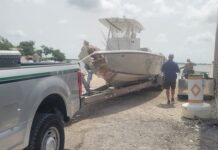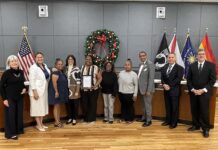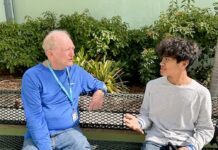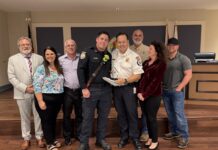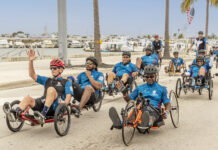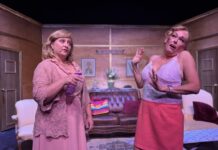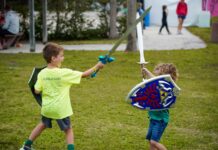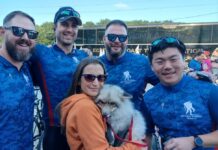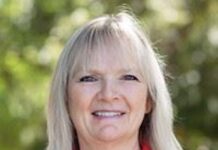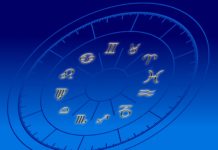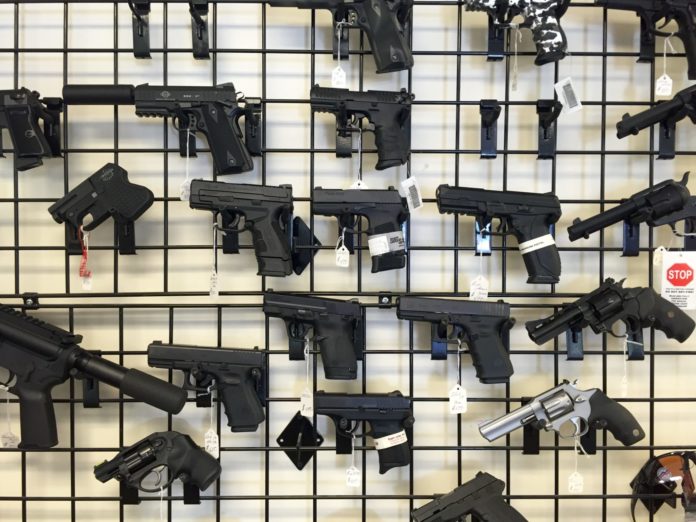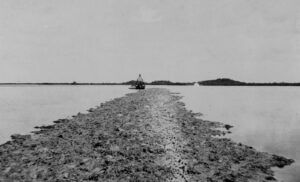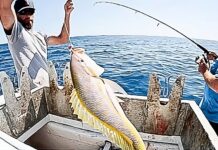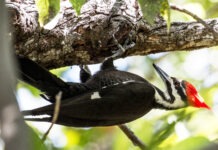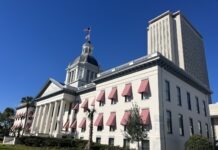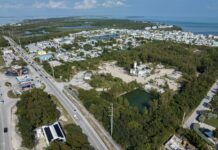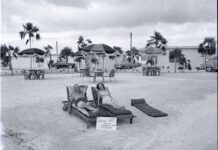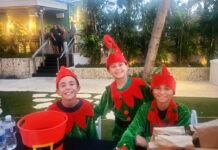A look at purchasing and shooting guns in the Florida Keys
Gun ownership has been on the rise in the past decade in the Florida Keys. While there might be many reasons to own a gun, two recurring ones are the need for self-protection and a fear the federal government will ban the sale of all guns. Keys residents are buying guns, and in many cases multiples, and obtaining concealed weapons permits faster than any other county in Florida.
According to Monroe County Sheriff, violent crime has decreased since 1995. However, because of how crimes are categorized it’s difficult to know how many incidents involved the use of guns. For example, a crime may be deemed violent but the weapon could have been a beer bottle or a gun. Or a burglary may be categorized as an armed burglary because a gun was present, but not necessarily brandished.
The Monroe County’s Sheriff’s office has documented one, maybe two, home invasions a year since 2008 according to Herrin. Key West Police spokesperson Alyson Crean said, “There were 36 burglaries of occupied residences in 2015. However, we categorize an occupied burglary as any type of theft when people are home. That means even a bike stolen off the porch would be included in this category.”
In September of 2015, a Big Pine Key man shot to death another man who was trying to force his way into the house in what was allegedly a domestic dispute. He was not charged with a crime as it was deemed a “stand your ground” scenario by the State Attorney.
Mark Senmartin owns Cash Flow Jewelry and Pawn in Marathon. (He is also the city’s elected mayor). He has been licensed to sell guns for seven years. “In order to even find out the dealer’s cost, I had to be licensed. So when I got into this, I didn’t even know if it was going to be profitable,” he said. Diligence is key when it comes to weapons sales and Senmartin is always on the look out for those attempting to make an illegal “straw purchase,” for another person who is not qualified to own a gun. (See more about authorized sellers in the sidebar.)
Who is buying the guns?
“Just your average regular citizen, really,” Senmartin said. “I have the group that wants something for protection, or the group that are collectors and are looking for something very specific. And then more recently, the group who is worried that their right to own a gun will be taken away and wants to purchase a gun before that happens; they don’t make a huge percentage, but its more than it used to be.”
Senmartin said he works to “match” the gun to the owner. “Ultimately, I will sell them what they want. But if you have an older woman that doesn’t have a lot of hand strength, and can’t work a slide, I steer her towards a revolver. Or I help buyers find a carry gun or choose a weapon for a minor. I want them to have the best option. That’s just customer service.”
In addition to selling guns, Senmartin also offers firearm education. He is a licensed NRA instructor able to provide certification classes for concealed weapon ownership. Senmartin’s classes are a three-hour classroom seminar about gun safety, handling and cleaning, and more importantly, gun laws. Senmartin teaches from the book; “Florida Firearms Law, Use and Ownership.” Then he takes the class to the shooting range to continue safety and responsibility when handling and shooting a gun. He said some students need less instruction than others. “We shoot until I’m comfortable the student is comfortable.”
In 2014, a Big Pine backyard range garnered national attention. When Doug Varrieur used his yard on a busy canal as a gun range, he was completely within his rights. However, public outcry prompted a change to the law. Gov. Rick Scott signed bill SB 130 last July, which prohibits the recreational discharge of a firearm in certain residential areas, specifically in areas “that the person knows or reasonably should know is primarily residential in nature and that has a residential density of one or more dwelling units per acre.”
This does not mean backyard ranges do not exist in the Keys, but they must be in more rural areas. Many Keys residents make use of two indoor shooting ranges — one in the Lower Keys and one in the Upper Keys.
Phillip Condella, owner of the Big Coppitt Gun Club, said he sees a mixture of clientele, about 25 percent women and up to 10 percent overseas visitors during season. The club offers free safety and instruction when entering the range and private lessons are always available. Staff checks the ammunition because steel cores are not allowed.
“We are not going to let people treat guns with a casual air,” said Condella, adding that staff absolutely refuses access to anyone who seems intoxicated or under the influence.
Condella sums up the essence of safe and lawful gun possession: “Anyone who owns a gun should know how to use it. Safety is a priority.”
The law
- Who can’t own a gun? Convicted felons, those convicted of a misdemeanor or domestic violence, and those who have been deemed mentally defective in a court or committed to mental institution. The Florida Department of Law Enforcement, the agency performing the background checks, may also deny the sale to a person arrested for one of 22 “dangerous” crimes ranging from extortion to controlled substance violations.
- When purchasing a gun, a buyer has two options first: to seek a registered and licensed Federal Firearm Licensed gun dealer who is “engaged in the business” of selling guns. Also, used firearms may also be bought and sold privately by an unlicensed seller. An unlicensed seller is categorized as someone who does not make the majority of their livelihood from gun sales and is not required to impose a waiting period or background check. President Barack Obama recently issued new executive actions that further restrict unlicensed sellers to less than two sales in certain circumstances in order to qualify.
- Gun purchasers, including those with a “carry” license, must pass a background check every time they purchase from a FFL licensee. That is true for purchasers of handguns or long guns. Persons 18 and older may purchase a long gun, defined as a shotgun or rifle, without a waiting period. Only persons 21 and older may purchase handguns and the purchase includes a 72-hour waiting period.
- Florida has no laws regulating the sale of “assault weapons” other than those listed above.
Since the inception of the National Instant Criminal Background Check (NICS) in 2014, the federal government has performed 202,536,522 checks. In that time, it has denied 1,166,676 transactions.
— Federal Bureau of Investigation
Imports of firearms from other countries to the U.S.: Brazil, 975,489; Austria, 954,388; Germany, 654,901; Italy, 503,590; and Croatia, 451,657.
— Federal Alcohol Tobacco and Firearms, 2013
Number of Federal Firearm Licensees by state
- Texas: 10,532
- California: 8,435
- Florida: 7,494
- Pennsylvania: 6,227
— Federal Alcohol Tobacco and Firearms, 2013

